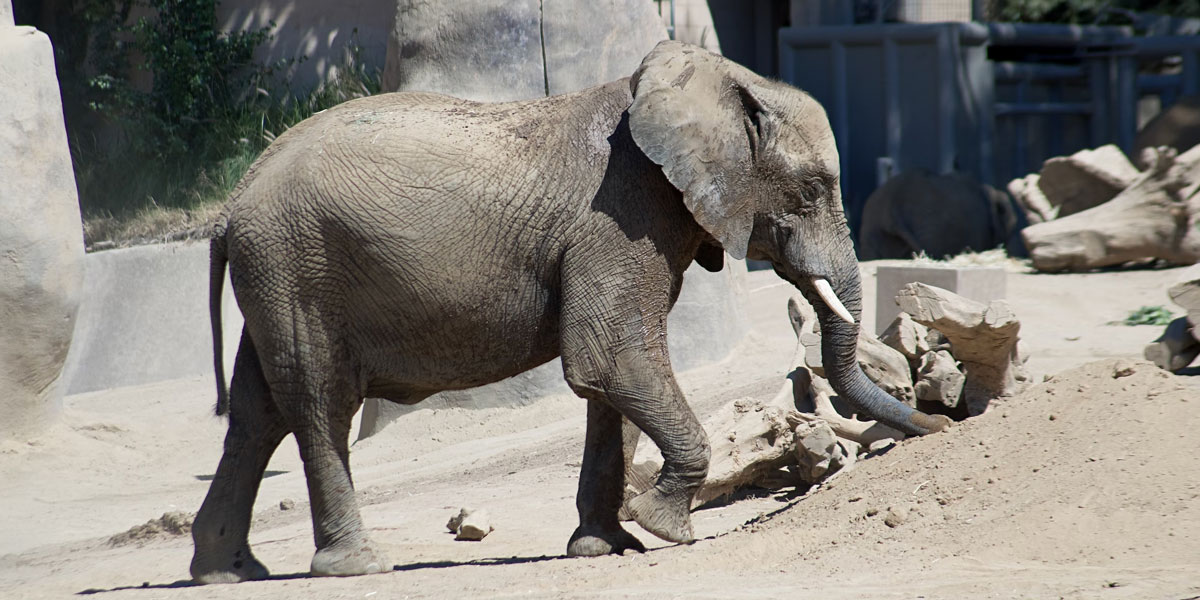Happy is an elephant at the Bronx Zoo.
The group NonHuman Rights recently brought a habeas corpus petition in state court challenging Happy’s confinement, which was dismissed because animals do not have human rights. The case reminds us of the ever-changing legal status of animals, which may eventually restructure society.
Another recent animal welfare legal action involved the rescue of 4,000 beagles being raised for lab experiments. A U.S. Department of Justice investigation of animal cruelty led to closing the breeding facility. I am very glad the beagles were saved, but the legality of animal testing was not addressed.
The first animal cruelty laws in Britain and the U.S. date to the 1820s. Anti-cruelty laws restrict ownership of animals and even protect animals being raised to be killed. The Endangered Species Act of 1973 established protection for species of wild animals (and plants) declared to be endangered or threatened.
How should we think about legal protections for animals? Should animals possess rights like people?
One argument for human rights derives from the dignity and moral value of each person. Rights protect individuals. This view of rights naturally extends to animals if they also possess intrinsic moral value.
But a second argument for human rights relates to our capacity for reason. Acting on the judgment of our minds requires freedom; rights enable the exercise of human rationality. This argument does not transfer as readily to animal rights.
Was Happy sad in captivity? At the Bronx Zoo she is fed daily, a diet guided by animal nutrition experts. Wild elephants eat grass, leaves, or whatever food is available. Happy receives veterinary care and protection from predators. Her space to roam is limited, but captivity offers some benefits.
Furthermore, the litigants wanted Happy sent to a wildlife sanctuary, not released
into the wild. The legal argument involved more living space.
Food and veterinary care are not free. Admission fees from thousands of zoo visitors pay for these. Doubling the pens of every zoo animal in America would be nice,
but also costly. What is NonHuman Rights’ plan to pay for Happy’s food, medical care,
and space without admissions revenue?
Standards of animal cruelty ultimately reflect human sensitivities. Bob Barker used to urge “The Price is Right” viewers to spay or neuter their pets. Euthanizing adorable puppies and kittens is heart-breaking.
Preventing overpopulation avoids this distress. But does this improve animals’ quality of life? My dog Diane never experienced giving birth to or nursing a litter of puppies. Would she have preferred motherhood even if her puppies were put down? Responsible pet ownership relieves human suffering.
Some critics dismiss animal rights as merely “cute” animal rights. I find this criticism valid but irrelevant. To apply an economic term, the value of animals is subjective, meaning in the eye (or heart) of the valuer. All economic value is subjective.
Objective standards of value for consumer goods do not exist; we cannot deduce the
value of Neopolitan ice cream from the separate values of chocolate, vanilla, and strawberry.
We should not expect consistency in our preferences for food, fashion, music, movies, or protecting animals. I see no problem with requiring humane treatment of animals raised for slaughter.
Consequently, courts should not create new protections for animals. With subjective preferences, precedents imply very little. We cannot argue: “Sam likes lettuce. Lettuce and spinach are both green, leafy vegetables. Therefore, Sam must also like spinach.” People must decide which animals to protect and how.
I will never participate in dogfighting regardless of its legality. Criminalizing dogfighting imposes my preferences on others, something I am reluctant to do as a libertarian. We restrict some persons’ freedom due to the pain animal cruelty causes for other persons.
No person knows if Happy would prefer life in the wild. Maybe one day a real-life Dr. Doolittle will learn to talk with animals. If Happy then expresses a preference for freedom over comfortable confinement, I would respect her choice. Absent Dr. Doolittle, courts granting “rights” to animals merely gives some humans dominion over other humans.
Daniel Sutter is the Charles G. Koch Professor of Economics with the Manuel H. Johnson Center for Political Economy at Troy University and host of Econversations on TrojanVision. The opinions expressed in this column are the author’s and do not necessarily reflect the views of Troy University.








